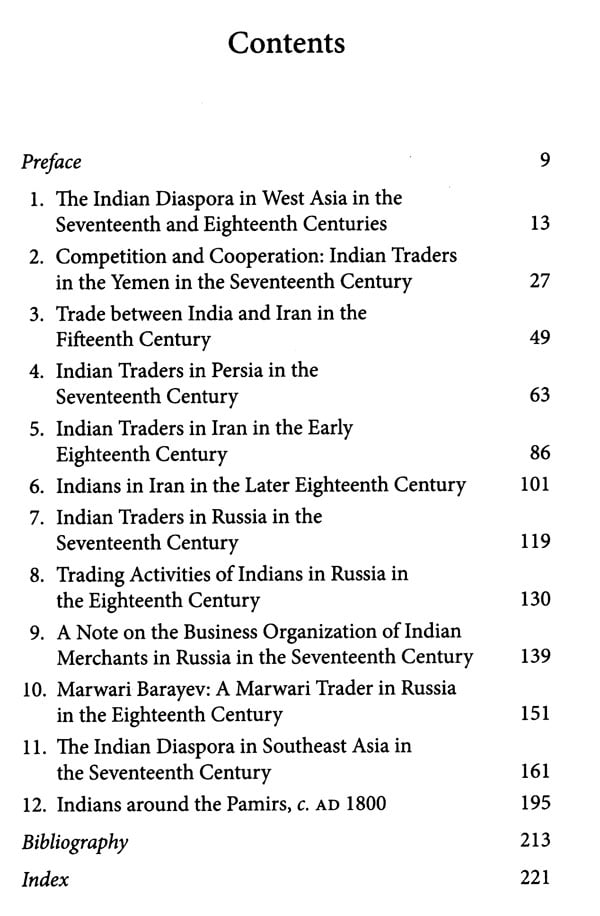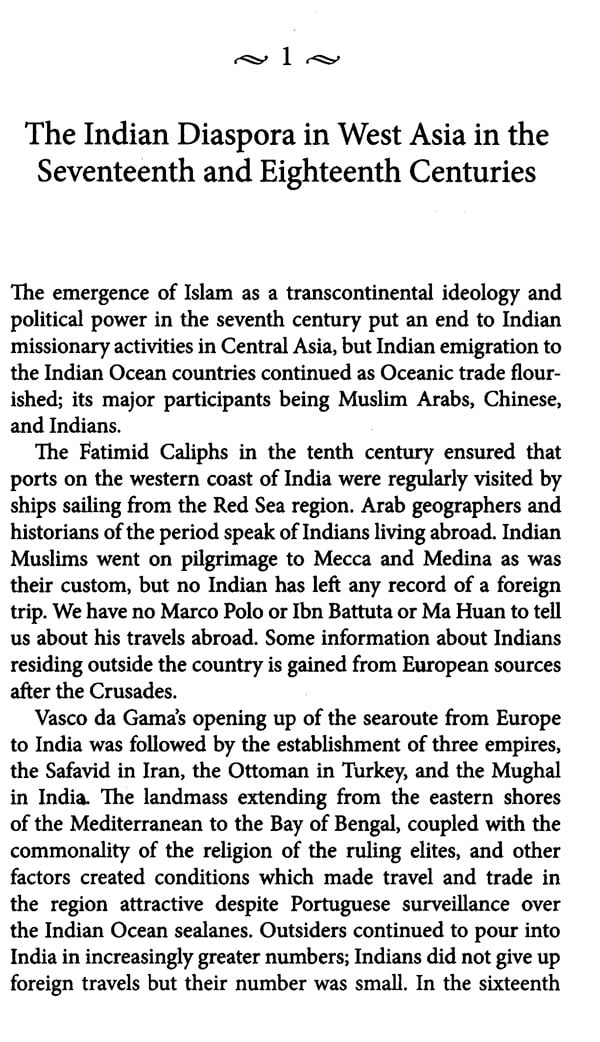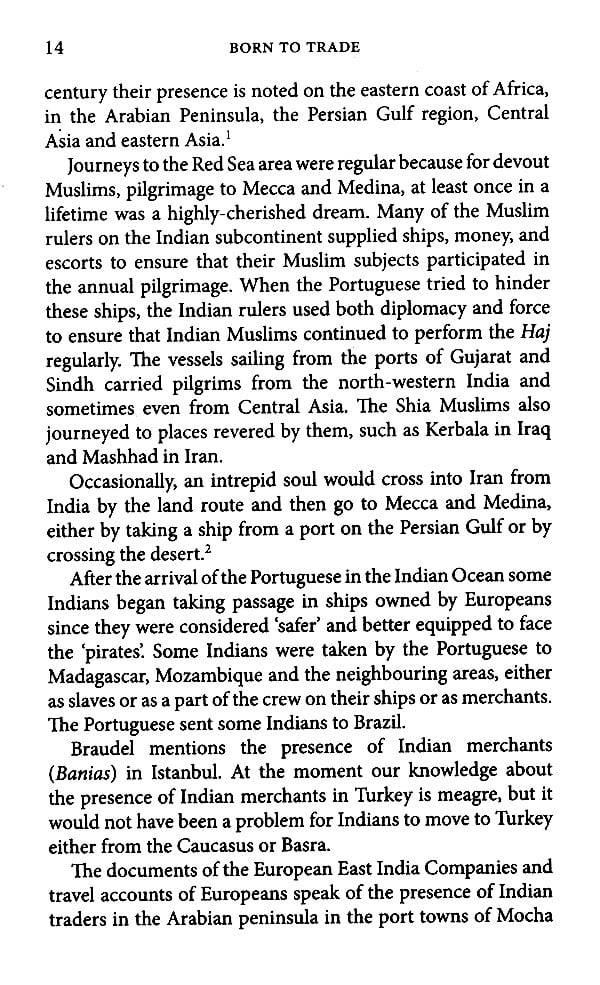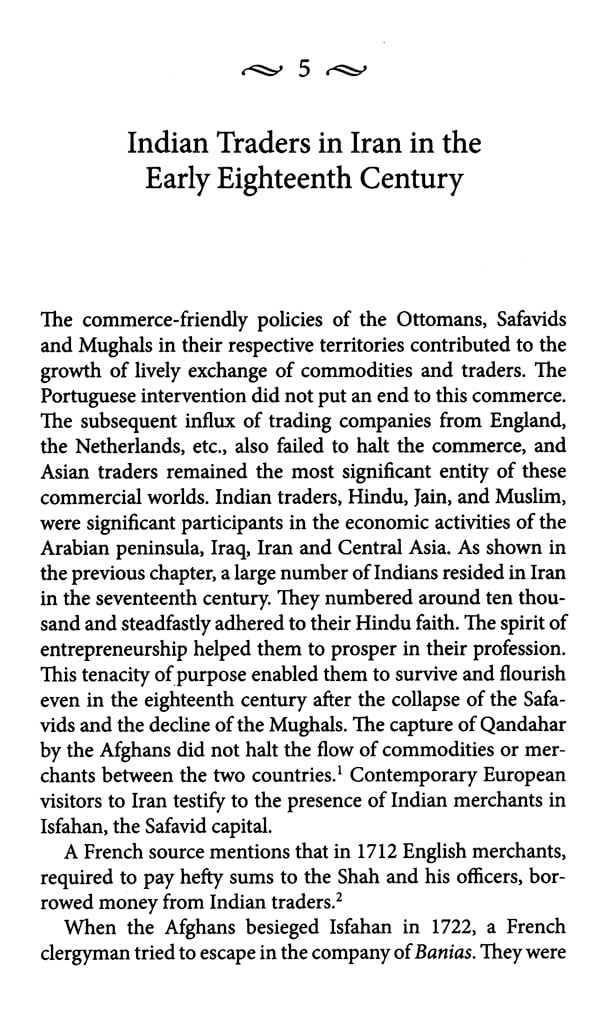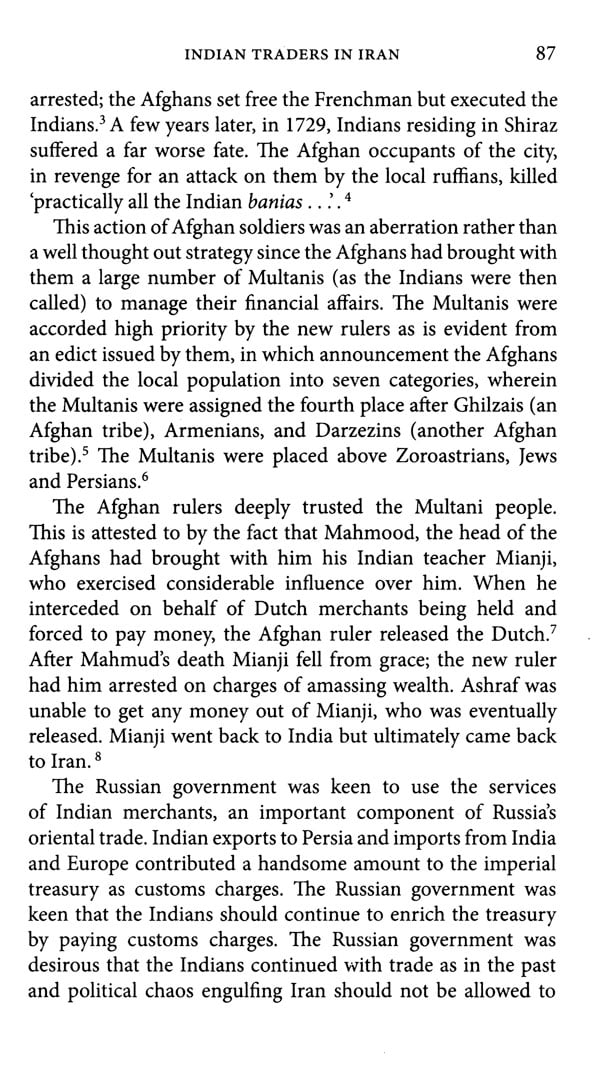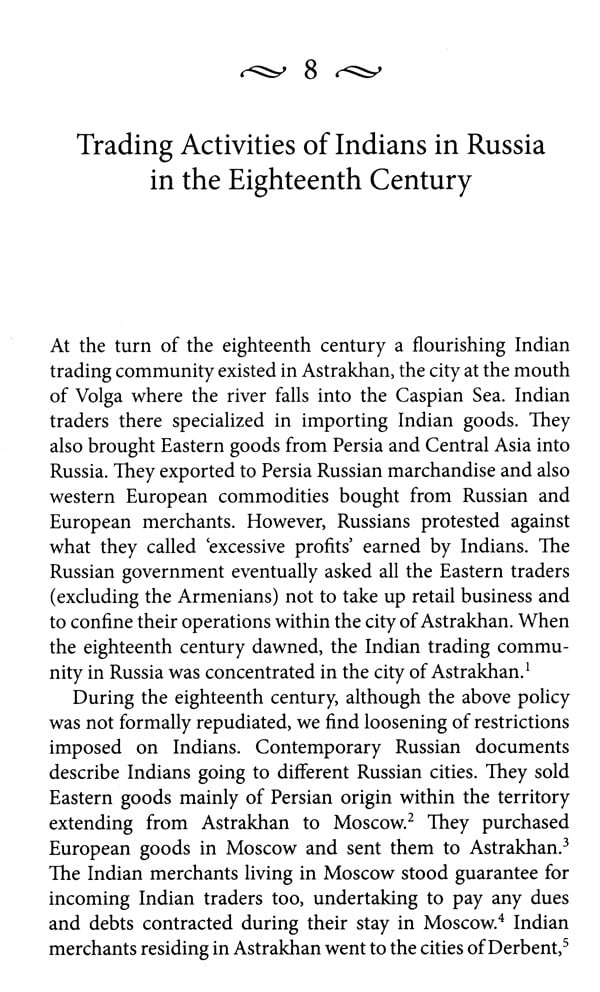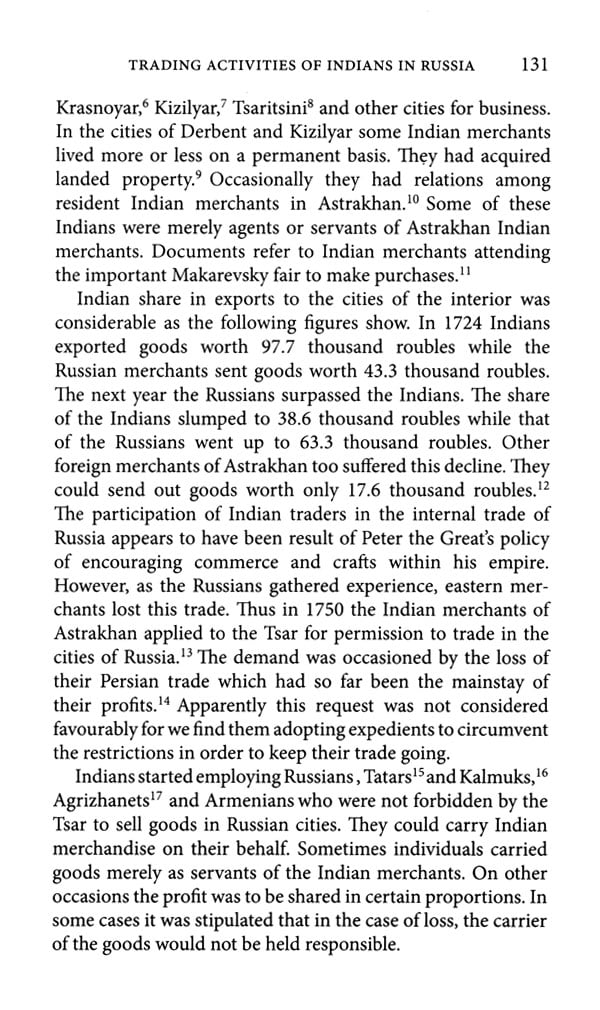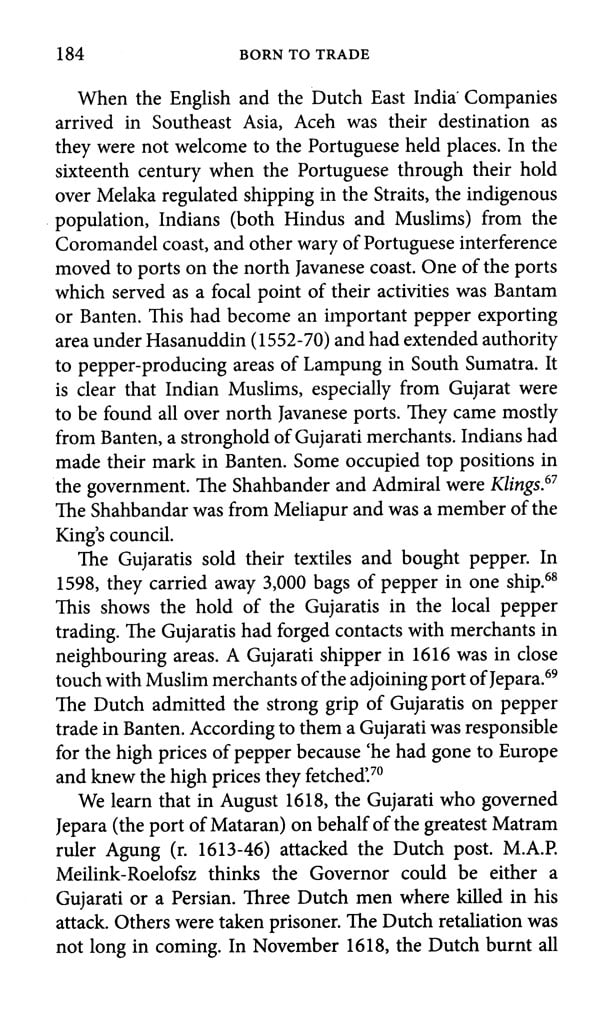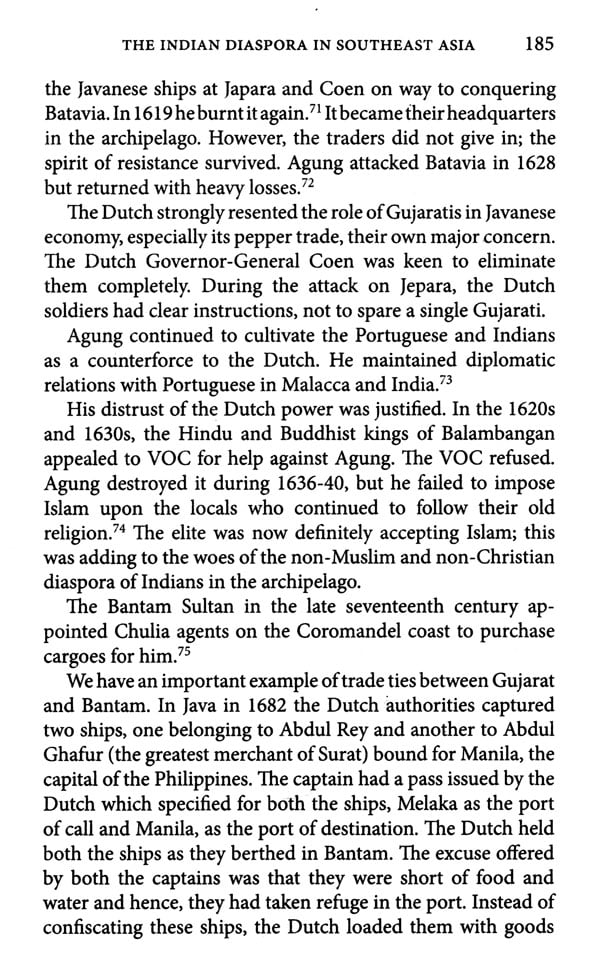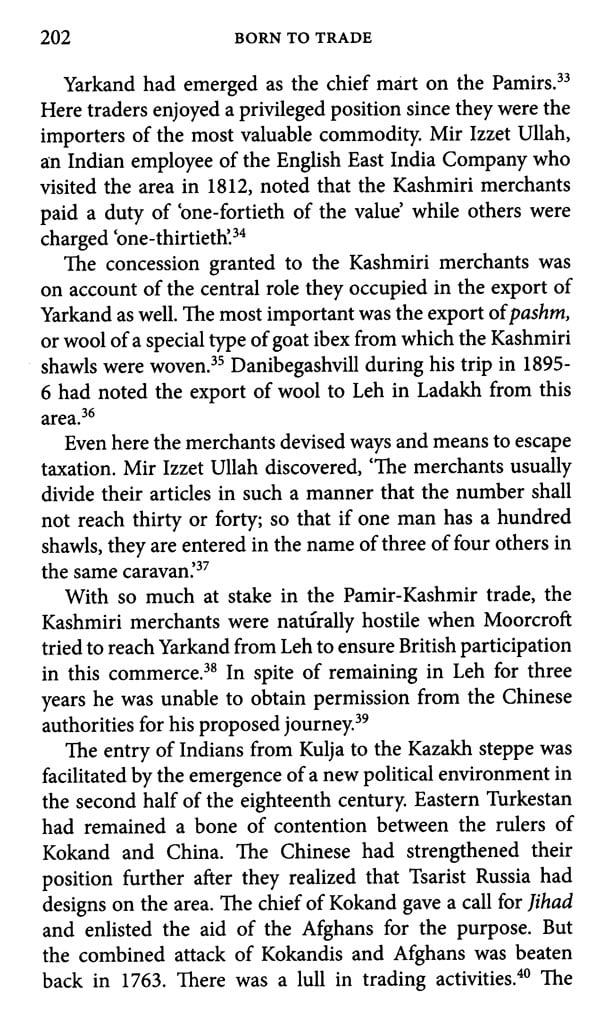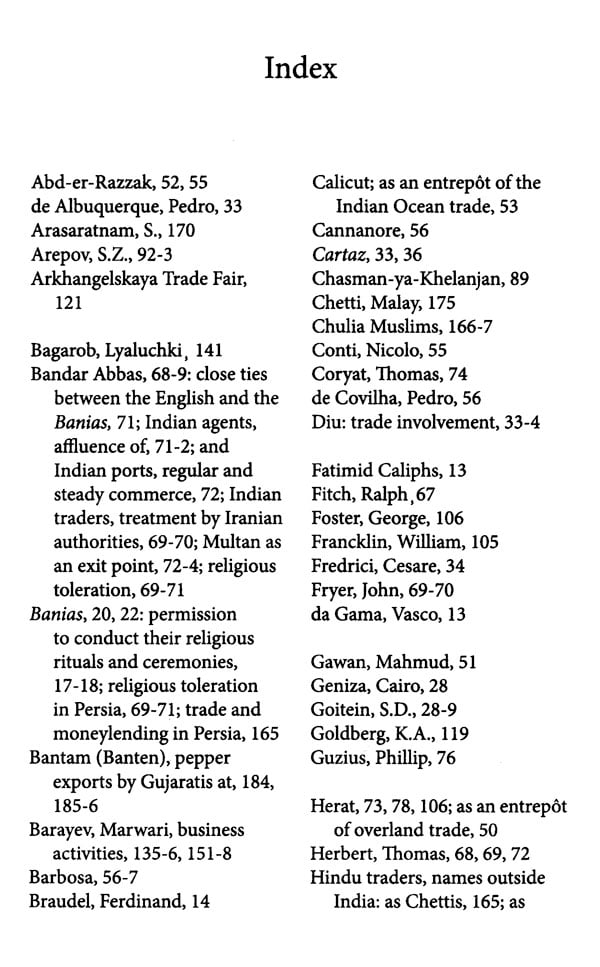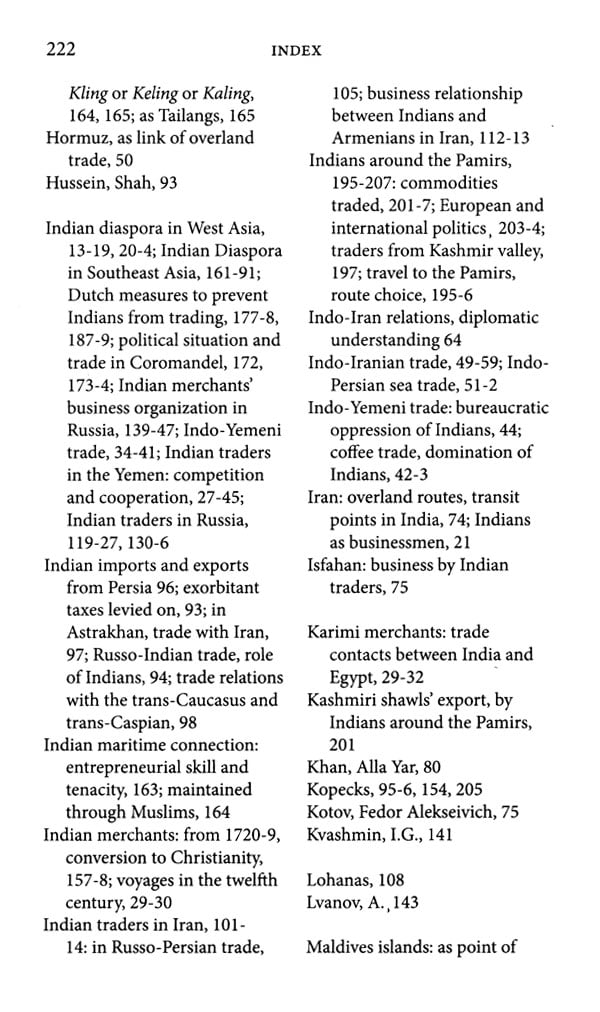
Born to Trade (Indian Business Communities in Medieval and Early Modern Eurasia)
Book Specification
| Item Code: | NAZ772 |
| Author: | Surendra Gopal |
| Publisher: | Manohar Publishers and Distributors |
| Language: | English |
| Edition: | 2016 |
| ISBN: | 9789350981238 |
| Pages: | 228 |
| Cover: | HARDCOVER |
| Other Details | 9.00 X 5.80 inch |
| Weight | 470 gm |
Book Description
This pioneering work traces migration of Indian traders to Russia, Iran, West Asia and South-East Asia in medieval times. Four essays throw light on the activities of the Indian business community in Russia. Generally Indians came to Russia via Iran. There they took a boat, crossed the Caspian Sea and reached the Russian port of Astrakhan. Indian visitors included Hindus (including Jains), Muslims, Christians, Parsis among others.
Hindus constituted the largest segment of the migrants. They became an object of local curiosity because of their rituals and social practices. They also became an object of jealousy. Indians did not enjoy political and administrative support as the European East India Companies did. Occasionally local rulers consulted them and sought their advice.
Three essays deal with Indian traders in Iran in the seventeenth and eighteenth centuries. One essay discusses trade between India and Iran in the fifteenth century. There are papers discussing activities of Indian traders in West Asia, Yemen and South East Asia in the seventeenth and eighteenth centuries. The conclusion focuses on Indian merchants and the Indian Ocean in medieval times.
The author concludes that Indian traders did not enjoy political and royal support, essential for success. He also affirms that crossing the seas did not lead to social boycott by their caste-men. This taboo came much later, probably with the advent of British rule in the nineteenth century.
Surendra Gopal served in the History Department of Patna University between 1958 and 1996. He has been keenly interested in historical researches. Some of his recent works are: Urdu Historiography in Bihar in the 19th Century: Contribution of Hindu Authors (2004); Dialogue and Understanding: Central Asia and India, the Soviet and the Post-Soviet Era (2005); Stepping into Modernity: Patna in the Nineteenth Century (2008); Shri Braj Kishore Prasad: The First Associate of Gandhiji in Bihar (2012).
As a school student in the 1940s, I liked reading biographies and autobiographies. Some of these, referred to Hindus being ostracized from their caste on their return from a visit to European countries. The excuse was that religion debarred Hindus from crossing the seas. Orthodox Hindus refused company to the 'returnees' during ceremonial feasts. Traditionalists even at times refused to marry their daughters to the 'ostracized' Hindus. With the passage of time, however, attitudes began to change. Crossing the seas stopped being a taboo for tradition-bound Hindus. Yet, this ritual associated with the Hindu religion remained fresh in my memory.
When I wrote about the commerce and crafts of Gujarat in the sixteenth and seventeenth centuries, I found Hindu Gujarati traders along with their compatriots visiting Saudi Arabian countries such as Yemen and Oman and the ports around the Persian Gulf. Eastward, Hindus went to Burma, Indonesia, and other Southeast Asian countries. They even visited China. I was surprised. I decided to find out more about Hindu visitors to these places. From time to time I published papers on Hindu traders outside India, and the present volume consists of some of these papers.
The task was difficult. None of the emigrant Hindu traders left written accounts of their activities in foreign countries. This is strange. Hindu traders were found in foreign countries throughout the seventeenth and eighteenth centuries. Some of them were not occasional visitors for brief periods. They quit when the countries were devastated by famines and other natural problems or political and military upheavals. Whatever information is available in these books is written by non-Indians. The foreigners were excited because of the `peculiarities' they discovered about Hindu traders who did not 'eat' with non-Indian traders. They were told that Hindu traders were basically 'vegetarian. The Hindus were idol worshippers. To Muslims this was strange. They were totally opposed to image worship in any form.
Book’s Content and Sample Pages